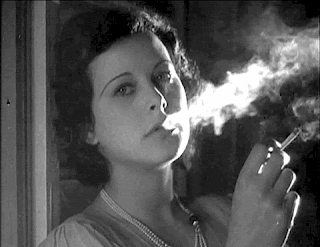Czechoslovakian New Wave
The Czech New Wave conspicuously drew influence from literature and expressed a cultural element by extracting inspiration from folklore. 'Valerie' (1970), 'in its depiction of clashes between paganism and Christianity rooted in Slavic history and culture comes an exploration of sin and sexuality, innocence, love, nature, and violence,' (SABINO, M) shows just how such a mystical and emblematic expression alludes to the rise of the counter-culture at the time. Furthermore, female directors at the time, such as Věra Chytilov and others, highlighted the rise of feminine power and independence through their films. Again this is a representative example of the counter-culture that was being introduced.However, as a result of such unconventional concepts, and the way 'filmmakers overtly subverted the social-realist genre imposed on them while still working under the auspices of the state, as expected, many of these films were swiftly banned after completion, only getting released locally after the Velvet Revolution' (SABINO, M).
Official founder of the surrealist movement, Andre Breton described Prague, the capital of Czech, as 'one of those cities that electively pin down poetic thought'. (MARTIN, S 2013). For this very reason, we see that from the Czech new wave, a diverse collection of expressive productions derived. However, it wasn't until 1934 that Czech cinema began to emerge and gain recognition within the world of film. It was ignited by the success of Gustav Machaty's 'Ecstasy' at the Venice film festival. The Czech director had paved his way into Hollywood as an assistant to Griffith and Von Stroheim. Although his film gained popularity, it evoked controversy and as a result, was condemned by the Vatican and cut repeatedly by the USA. it can be argued that the these events became a microcosm of what would evolve into the Czech New Wave. (OWEN, J L 2011)
Reference List:
MARTIN, S. (2013). New Waves in Cinema. Hertfordshire: Kamera Books.
OWEN, J L. (2011) Avant-Garde to New Wave: Czechoslovak Cinema, Surrealism and the Sixties. New York: Berghahn Books.
SABINO, M. (2014) Taste of Cinema [Online] Available From: http://www.tasteofcinema.com/2014/10-essential-films-from-the-czech-new-wave/ [Accessed: 28th September 2015].



No comments:
Post a Comment